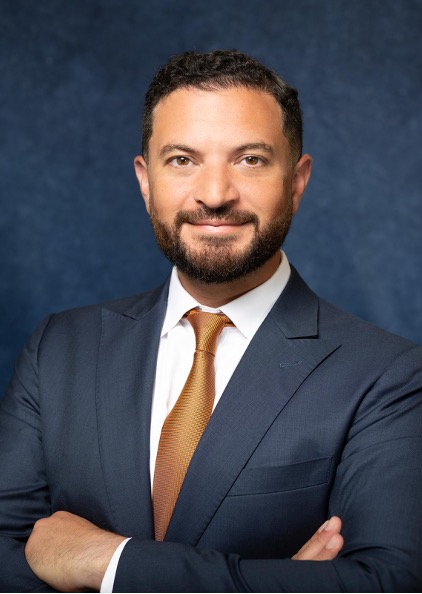The path was the model: How every step prepared Dr. Rany Aburashed to advance Alzheimer’s research
From medicine to mission
Some people choose innovation. Others are shaped by it.
BRANDVOICE – SPECIAL FEATURE

For Dr. Rany Aburashed, disruption wasn’t a business strategy; it was destiny. Over two decades, he has lived every angle of the healthcare equation: healer, researcher, operator, and now founder. Each chapter revealed what the system could not see on its own, and together, those experiences made him the type of person who could build Neurogen Biomarking.
Early Lessons in the Field
Trained at Michigan State University, Aburashed’s journey began in the trenches of patient care. As a young neurologist, he saw the heartbreak of late diagnosis every day, patients and families arriving when it was already too late.
“You don’t forget those faces,” he says. “It stays with you until you either accept the system’s limits or decide to rewrite them.”
He chose the latter.
Understanding Systems and Their Limits
As Chief of Neurology at Memorial Healthcare and later as Corporate Chief Medical Officer at Insight Health Systems, Aburashed learned how large systems function and where they fail. He rebuilt departments, recruited world-class teams, and learned the architecture of scaling medicine without losing its humanity. Colleagues describe him as both forward-thinking and practical.
The Birth of Neurogen Biomarking
That builder’s instinct ultimately birthed Neurogen Biomarking, a company born not in a lab but in lived experience. Aburashed saw that the future of Alzheimer’s care would not start in hospitals; it would start in homes.
Neurogen was designed as a bridge between the earliest human worry and the highest medical standard: at-home blood testing, digital cognitive assessments, and board-certified neurological consultations combined into one cohesive ecosystem.
A Philosophy, not just a product
Unlike most startups, Neurogen did not begin with a technology; it began with a philosophy. Every design decision echoes the lessons of Aburashed’s career: simplify the process, protect the data, and earn the trust.
It is the architecture of a clinician who has seen how fragile both human memory and institutional integrity can be.
Leadership Rooted in Humanity
His leadership style is known for its empathy. He is as comfortable with a hospital janitor as he is in a boardroom, and that accessibility, rare in medicine, has become part of Neurogen’s DNA.
Every Step Aligned
Aburashed’s path was not accidental; it was aligned. Each experience, every patient, every trial, and every late-night call was a framework. From the humility of residency to the complexity of executive leadership, he gathered the raw materials needed to build something the system itself never could.
Connection to Australia
Today, Neurogen Biomarking represents more than a company; it is the culmination of a life spent watching, listening, and refusing to accept that decline must define destiny. It is an operating system for brain health, built by someone who has seen every side of suffering and decided that the story could still be rewritten.
As Alzheimer’s rates continue to climb worldwide, including in Australia, where nearly half a million citizens are affected, the urgency of innovation transcends borders. Neurogen Biomarking represents an approach for global collaboration, a reminder that scientific progress gains its true power when shared. For Aburashed, the goal was never simply to lead; it was to unite medicine’s brightest minds under a single purpose: to change the course of brain health for everyone, everywhere.
Shaping What Comes Next
“I never intended to challenge convention,” Aburashed says. “I just couldn’t unsee what needed to change.”
The information provided in this article is for general informational and educational purposes only. It is not intended as medical or professional advice. Readers should not rely solely on the content of this article and are encouraged to seek professional advice tailored to their specific circumstances. We disclaim any liability for any loss or damage arising directly or indirectly from the use of, or reliance on, the information presented.